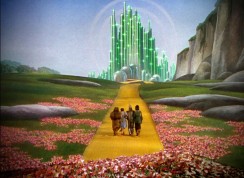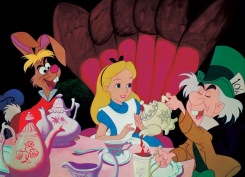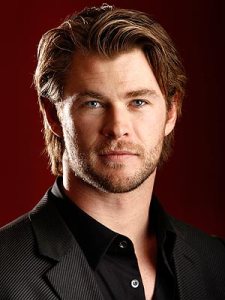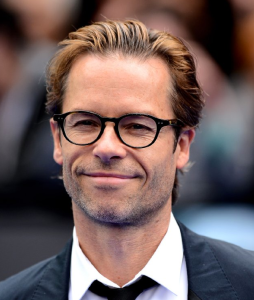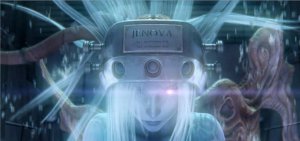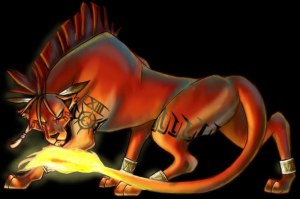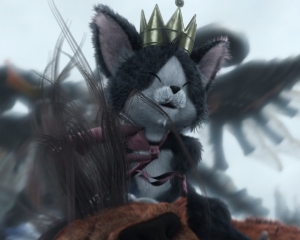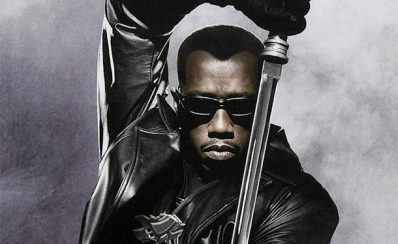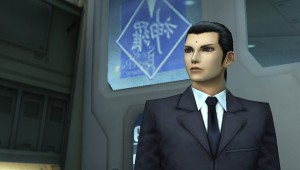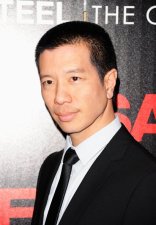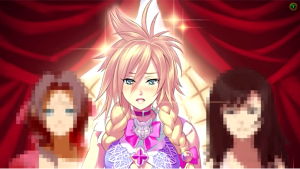Episode I: Those on the Verge
Ianto, an adolescent boy, struggles to find belonging in his urban home. Estranged from his sister, prohibited by his father, and even amongst his friends, a gang of misfit freaks, Ianto finds himself an exile amongst outcasts. For he possesses a power that sets him apart from all those who live – he can perceive lingering spirits of the deceased. Sympathising with these restless ghosts, Ianto patrols the streets under dark of night, a vigilante defender of the dearly departed and guide to the lost souls.
However, as he wanders the shadows, he harbours his own personal agenda – he seeks the spirit of his beloved mother, who mysteriously died while he was very young. Racked with grief and tormented by terrible nightmares, Ianto cannot find it within himself to live on without her, contemplating suicide in his desperation to be reunited. Until, one day, a new girl transfers into his school, Ophelia, who bears a striking resemblance to Ianto’s mother, and he is enchanted by her.
That night, Ianto is attacked by a horde of soul-devouring wraiths, but he is rescued by Ophelia, who demonstrates her own supernatural powers, just like his own. They hit it off as kindred spirits, but Ophelia is stalked by a cloaked, wicked Phantom. Envious of Ianto, determined to eliminate him, the Phantom targets and kidnaps his little sister, Haruna.
Episode II: Call of the Abyss
Ianto learns of Haruna’s disappearance, but in his cold-hearted resentment, he instead heads to meet up with his friends at their regular hangout – an extraordinary antique shop run by an eccentric, middle-aged man, Cadwallader, one of the only places Ianto feels at peace. But Cadwallader scolds him for his callousness toward his sister, reminding him of the dangers that lurk in the shadows.
Ianto reluctantly agrees to search for her, and the gang heads out into the streets, lead by a swarm of Soulwraiths to her location at an abandoned factory, where she is held in an elaborate trap. As the possibility of losing his sister becomes all too real, Ianto’s true feelings for his sister take over, and he desperately struggles to save her, playing into the hands of the Phantom. However, Cadwallader unveils his true colours as he wields his own supernatural powers, sparing Ianto and Haruna. But the Phantom tenaciously strikes back, trapping them all in the factory and setting it ablaze. They are miraculously rescued by Ophelia who drives the Phantom away, but he leaves Ianto with cold, startling words, that he and his “organisation” possess the spirit of his mother.
Returning safely with his sister, Ophelia explains the Phantom was a ghost boy named Malik, who in her loneliness, she once fell in love with, but when he plunged into madness and attempted to take her life to bind them together, she left him, and heartbroken, he joined a crooked organisation of Phantoms, the ‘Cythraul’. Now, he haunts her night and day, ensuring she remains his and his alone. She tells Ianto it’s too dangerous for him to be around her, for him to stay away. He refuses, but the Phantom, Malik, appears once again, demanding Ophelia join forces with the Cythraul, or Ianto, his friends and his family will perish. Unwilling to put anyone else in danger, she accepts his offer. Ianto is powerless to stop her, and she strides away with Malik into the Abyss.
Episode III: Naught’s Threshold
Ianto and his friends return to the antique shop, where Ianto immediately confronts Cadwallader, aware of his ability to perceive ghosts, and demands he reveal everything else he’s hiding. Unable to conceal the truth any longer, Cadwallader admits he was taught to see ghosts by Ianto’s mother, Aerona, as they were once close friends, and research partners.
Confessing their history as paranormal scientists, they endeavoured to ease the pain of their city after a Great Fire reduced it to ashes. To this end, they created a divine instrument called “The Ark”, an almighty vessel with the power to ferry lost souls into the afterlife, bringing peace to the myriads of lost souls. However, the Revenant Phantoms of the Cythraul launched an assault upon them, striving to claim the Ark’s power for their own, Aerona making the ultimate sacrifice, and giving her life to destroy the Ark.
Ianto, furious with Cadwallader for leaving him in the dark all this time, and determined to rescue Ophelia and his Mother’s soul, barges into Cadwallader’s Nexus, a station between worlds, and plunges through an abyssal vortex, Naught’s Threshold, in pursuit of Malik. His friends, owing their loyalty to Ianto and Ophelia, vow to help him rescue her, and after Cadwallader teaches them to perceive and battle with Phantoms, they follow Ianto into the Abyss. Arriving in the Spectral Realm, they behold the dominion of their enemy – a vast, gothic castle floating amongst the dark clouds.
These are the first three episodes of the six episode series I am writing for the Major Project of my Scriptwriting MA, entitled Betwixt & Between. This story, the tale of the teenage boy searching for the soul of his Mum, has consumed my creative life for the best part of a year. It is my proudest work to date, and is thus far in my writing career, the closest thing I have to a Magnum Opus. It has challenged and driven me, as I have challenged and driven it, the two of us, writer and script, in constant evolution, mutation and development, adapting to new ideas and accommodating constructive feedback. I’m a very different person than I was a year ago, but my spirit remains untarnished and unchanged. Reflecting me, my script’s surface is also radically transfigured, but at its core, the essence remains pure and staunchly unaltered.
I consider this story a contemporary fairy-tale, a teen fantasy, and a Metaphysical drama, exploring profound dimensions of psychological and spiritual character. It treks across a vast galaxy of thematic worlds, its title, Betwixt & Between, the quintessence of its very greatest, as its characters find themselves between childhood and adulthood, life and death, light and darkness. Though it strongly concerns itself with subjects such as Death, Friendship, Dreams, Memory and Existentialism, Ianto’s journey is ultimately one of Coming of Age. Ianto begins as a childish, selfish, lost little boy, and ends having taken a great step in becoming a man.
The script, like its writer and protagonist, indeed sports its fair share of flaws – confusion of character motivations, dependence of flashbacks to convey exposition, and is somewhat damsel-in-distressy. My strategy to improve the script has not been to eliminate these elements, but consciously utilise them, twisting and toying with them until they can no longer be recognised as flaws, but strengths, and am now proud of their inclusion within the script.
I cannot take all the credit though, as I owe a great debt to many works of art and theory that have inspired this tale. In all likelihood, J.K. Rowling’s Harry Potter books and their film adaptations have played the greatest role in evoking this story, and igniting my storytelling passion from the very beginning. From the stories I was praised for in primary school, to the Major Project of my Masters Degree, Rowling has sub-consciously possessed me, and taken every step for me, while every protagonist I have conceived has been constructed around the template of her own Boy Who Lived. She dwells within me, as Harry dwells within Ianto.
While the very end of my MA is swiftly arising, the day of reckoning is at hand, and I stand at the precipice, gazing into the endlessly swirling abyss that is my future, I wonder what will become of scriptwriter Kyle Thomas Rees. Where will I go, what will I do, how far will I fall, how bravely will I fight, how passionately will I love? All I know is, if I’m ever in doubt, I can put faith in the characters of my own stories, and wonder “What would Ianto do?” and maybe, things will work out for the better, or not. But right now, my excitement for what’s to come mostly involves the mere fact that although my MA is over, Betwixt & Between is not even close. I still have Episode IV: Dark Shores, V: The Schism, and VI: The Ark, to write and develop, and the best is yet to come.
And for those hungry for another taste of my production, here is a small extract of the Major Project Script itself. Enjoy, and please do feel free to offer your feedback!
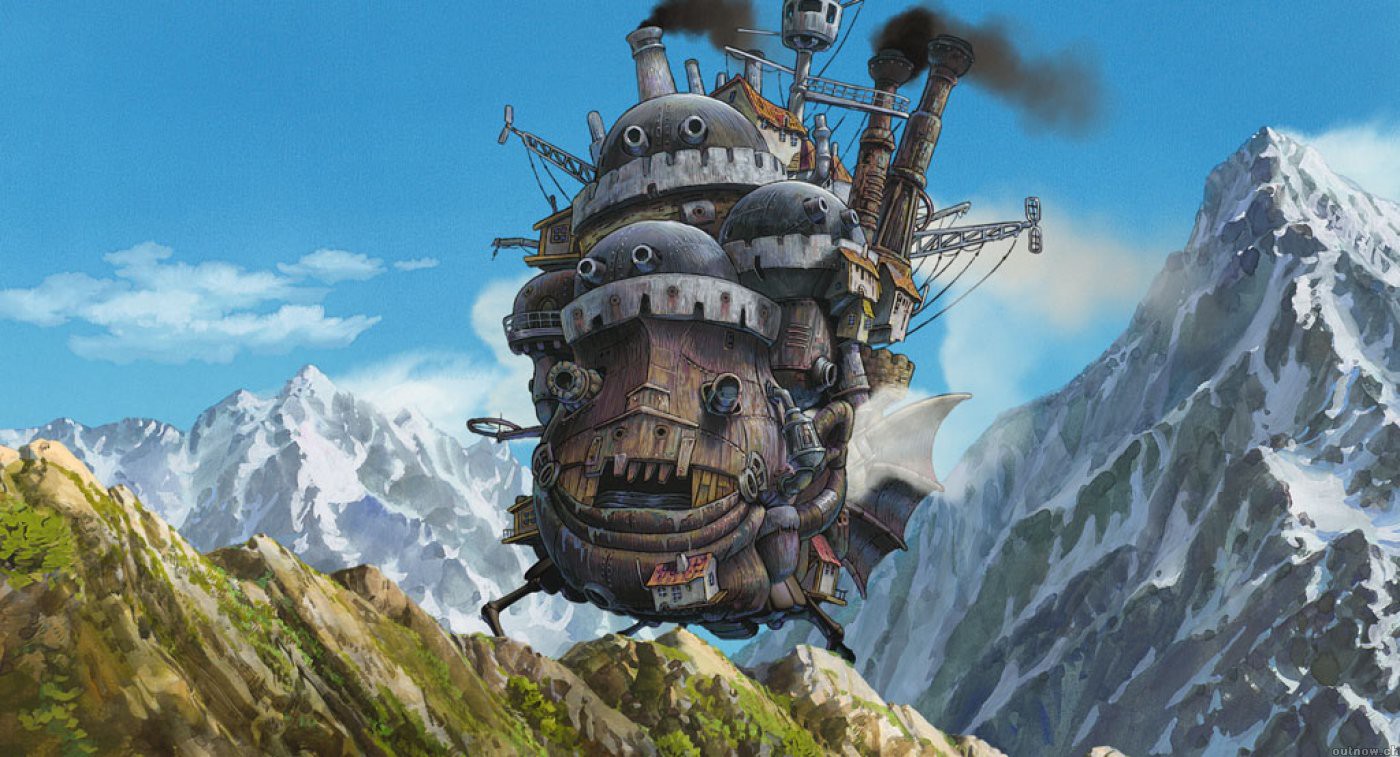









 Amaterasu Emerges
Amaterasu Emerges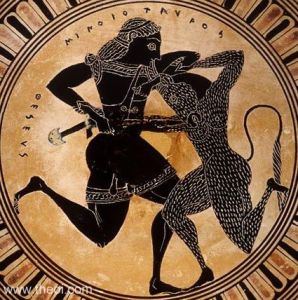 Theseus & the Minotaur
Theseus & the Minotaur Gautama Buddha beneath the Bo Tree
Gautama Buddha beneath the Bo Tree Saturn Swallowing his Children
Saturn Swallowing his Children Earthrise
Earthrise